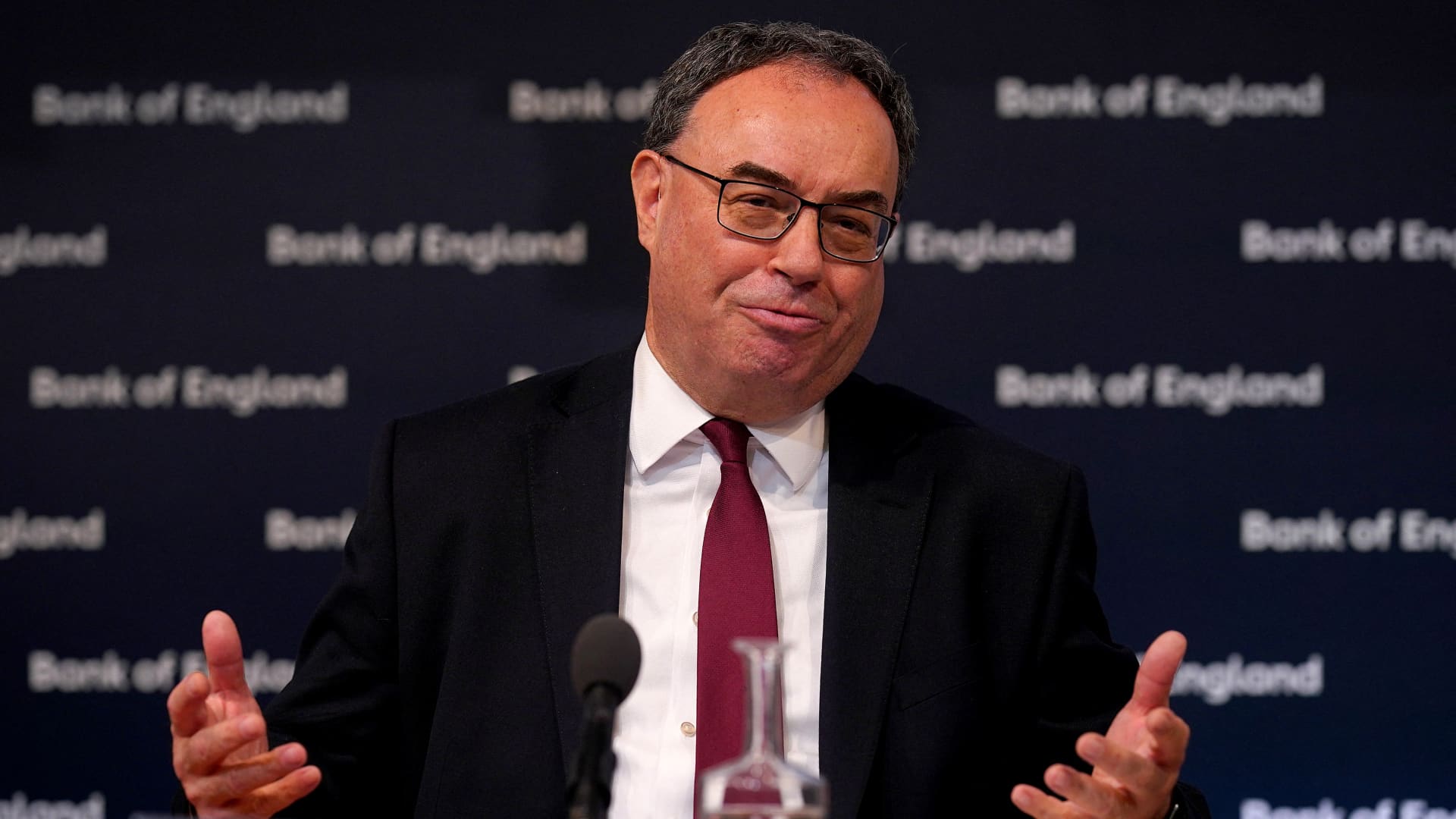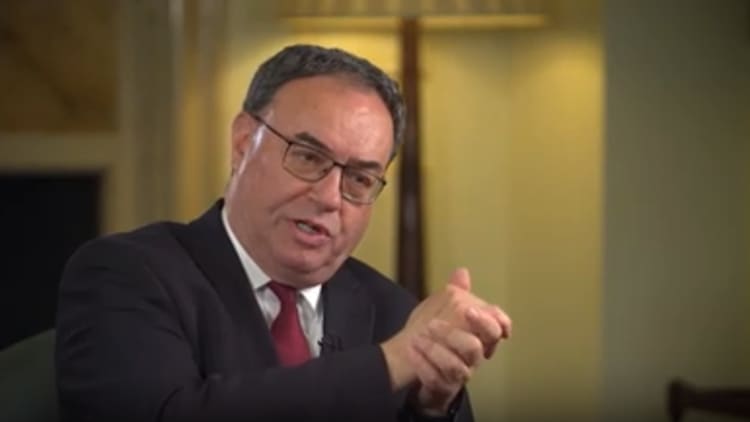Traders reassess Bank of England rate cuts as UK grows at fastest rate in nearly 3 years

Bank of England Governor Andrew Bailey attends the central bank’s Monetary Policy Report press conference at the Bank of England, in London, on May 9, 2024. The Bank of England on Thursday kept its main interest rate at a 16-year high, but hinted at a cut over the summer as UK inflation cools further and the country looks set to exit recession. (Photo by Yui Mok / POOL / AFP) (Photo by YUI MOK/POOL/AFP via Getty Images)
Yui Mok | Afp | Getty Images
LONDON — A slew of commentary from the Bank of England and a better-than-expected economic growth number have left traders and investors scrambling to refine their bets on when the U.K. central bank will start to cut its benchmark rate.
Investors had been eagerly awaiting any indicators in the hope that they would provide hints about when cuts may begin. The BOE’s benchmark rate helps price all sorts of loans and mortgages in the country and has risen rapidly over recent years to help tame high inflation.
Markets on Friday were pricing in an around 48% chance of a rate cut in June according to LSEG data, slightly higher than Thursday’s 45% probability.
Economists at Swiss Bank UBS were among those who shifted their view on when the BOE may cut interest rates, saying they were now expecting the first rate cut to take place in June rather than August.
“The broader message and the tone of the MPC were more dovish than we had anticipated,” they said in a note published following the BOE’s latest interest rate decision.
The central bank on Thursday said it would leave interest rates unchanged for now, and stressed that a June rate cut was in no way guaranteed. Two members of the Monetary Policy Committee voted to cut rates, one more than at the central bank’s previous meeting.
“June is not a fait accompli, but each meeting is a new decision,” BOE Governor Andrew Bailey said in a post-meeting press conference.
UBS cited changes to the BOE’s forward guidance, inflation expectations and comments from Bailey regarding the impact of increased national living wages on overall wage growth as reasons for their changed expectations.
The Swiss bank now expects rates to be cut in June, August and November, it said, by 25 basis points each.

The BOE’s interest rate decision was followed Friday by the latest U.K. gross domestic product data, which showed that the U.K. economy grew by more than expected in the first quarter of 2024.
GDP increased by 0.6% compared to the 0.4% estimate, marking the first quarter since the end of 2021 in with GDP growth exceeded 0.5%.
The economy thereby exited the technical recession it had entered after two consecutive quarters of contraction in the second half of last year.
“This is undeniably a strong number and suggests the U.K. economy is shaking off its woes from 2023,” Nomura analysts said in a note published Friday. This could suggest that inflationary pressures are persistent and the economy is more resilient to higher interest rates, they noted.
The BOE on Thursday warned that indicators of persistent inflation “remain elevated,” but also said it was anticipating inflation to close in on the 2% target in the near-term.
“This [GDP] release further strengthens our view that the Bank of England will need to keep policy restrictive for longer than markets are pricing to bear down on inflation,” analysts said, adding that they expected the central bank to wait until August before cutting rates.










